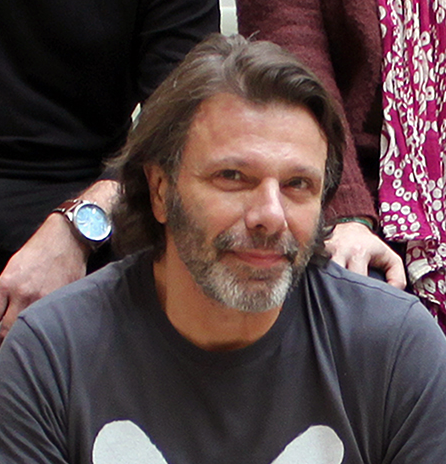Copyright © 2008-2018 Università cattolica del sacro cuore. Tutti i diritti riservati - Cookie Policy - Impostazione dei Cookies - Privacy

Joseph Trotta | University of Gothenburg | Sweden
September 15th 2022 | 15.00 – 16.00
Keynote Speech: Loving the futures we hate: the ubiquity of dystopias in popular culture
Room G.127 | Università Cattolica del Sacro Cuore Milan, Largo Gemelli 1

Loving the futures we hate: the ubiquity of dystopias in popular culture
Dystopian themes are notably pervasive in today’s popular culture. We typically encounter them via various modes of storytelling (e.g., literature/film/TV), as a central, genre-defining setting for a narrative, but they also feature explicitly or implicitly in many other forms of cultural expressions, such as advertisements, games, art, lyrics, podcasts, fashion, to name but a few. This prevalence has ostensibly boosted the use of ‘dystopia/n’ as a descriptor outside of such contexts/expressions, for example in news reportage, political discourse, science journalism, business/financial news, likely for its powerful rhetorical effect (as a so-called ‘fear appeal’, cf. McAlear 2010, Panay 2017).
Despite their characteristically bleak and brutal themes, dystopias strike a chord with us; in various forms of entertainment, we find them compelling and intriguing. Explanations for this fascination abound; perhaps we embrace these worst-case extrapolations of current realities because they allow us to vicariously explore the challenges they present (cf. Berger 1999; DiTommaso, 2014). We may also interpret them as social commentary (à la Jameson 2007) or indicators of a grim future we can still prevent. Additionally, we may seek consolation in the ways dystopias highlight what it means to be human in a dramatically dehumanized world (cf. Filipovic, 2019).
With a specific focus on transmediality, this presentation surveys how dystopias are packaged and presented to us in storytelling and beyond. With an eclectic and muti-layered approach, I discuss the symbolic value of dystopias and dystopian imagery, how these are used in their various forms, how we relate to them, and why, despite the ostensible contradiction, we love futures we hate.
Joseph Trotta is an Associate Professor and distinguished teacher of English Linguistics at the Department of Languages and Literatures, University of Gothenburg, Sweden. Joe is a lapsed Chomskyan, his research focus has shifted over time from theoretical approaches to English syntax toward the use of English in popular culture. Trotta’s academic interests are eclectic and varied; most of his recent publications are interdisciplinary and deal with issues of identity and linguistic representation in mediatized language such as TV dialogs, music lyrics, online games, etc. In additions to linguistics, he has also published articles on urban culture, literature, and media studies. In 2019 he was the chief editor of the anthology Broken mirrors: Representations of apocalypses and dystopias in popular culture.